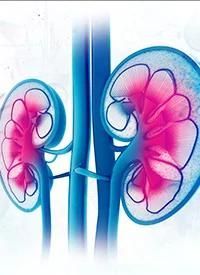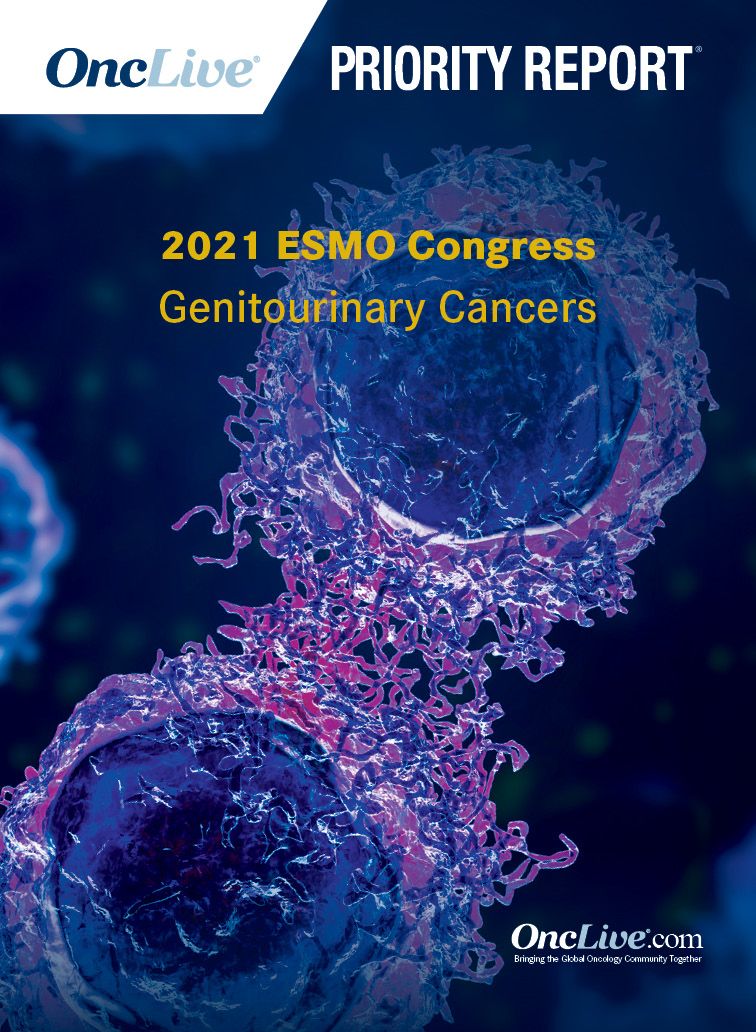Publication
Article
Supplements and Featured Publications
Frontline Immunotherapy Improves Survival in Advanced RCC, But Benefit to Be Determined for Favorable-Risk Subset
Author(s):
Frontline immunotherapy resulted in improved progression-free survival and overall survival compared with sunitinib in patients with advanced renal cell carcinoma; however, determining the benefit in those with favorable-risk disease must be examined further.

Frontline immunotherapy resulted in improved progression-free survival and overall survival compared with sunitinib (Sutent) in patients with advanced renal cell carcinoma, according to data from a meta-analysis of 5 randomized trials presented during the 2021 ESMO Congress.1
Investigators reported that all clinical trials included in the analysis reported an advantage to overall survival (OS) and progression-free survival (PFS) with an immunotherapy regimen compared with sunitinib (HR for OS, 0.71; 95% CI, 0.61-0.84; HR for PFS, 0.64; 95% CI, 0.51-0.82). Notably, the favorable-risk subgroup analysis indicated that no difference was observed in terms of OS between the treatment cohorts (HR, 1.07; 95% CI, 0.81-1.41) with a trend toward an advantage of immunotherapy for PFS (HR, 0.74; 95% CI, 0.46-1.19).
Due to recent evidence indicating that this patient population may experience an improved prognosis after being treated with immunotherapy, investigators launched the meta-analysis to evaluate the safety and efficacy of first-line immunotherapy compared with sunitinib in those with favorable-risk advanced RCC.
Investigators underwent a systemic search of PubMed, Ovid MEDLINE, Embase, and the Cochrane Central Register of Controlled Trials, and the evidence was assessed for quality. Survival hazard ratios were extracted for both the overall patient population and the favorable-risk subgroup.
Investigators used findings from 5 clinical trials, including the phase 3 CheckMate 9ER trial (NCT03141177), which examined nivolumab (Opdivo) plus cabozantinib (Cabometyx) versus sunitinib in previously untreated RCC; the phase 3 CheckMate214 trial (NCT02231749) which examined nivolumab plus ipilimumab (Yervoy); the phase 3 JAVELIN Renal 101 study (NCT02684006), which examined avelumab (Bavencio) plus axitinib (Inlyta); the phase 3 KEYNOTE-426 study (NCT02853331), which examined pembrolizumab (Keytruda) plus axitinib; and the phase 3 CLEAR trial (NCT02811861), which examined lenvatinib (Lenvima) plus pembrolizumab. The meta-analysis included a total of 1088 patients.
For the favorable-risk population in the CheckMate 9ER trial, investigators reported a hazard ratio (HR) of 0.84 for OS (95% CI, 0.35-1.97) and an HR of 0.62 (95% CI, 0.38-1.01) for PFS. Additionally, in the CheckMate214 trial, investigators reported HRs of 1.19 (95% CI, 0.77-1.85) and 1.65 (95% CI, 1.16-2.35) for OS and PFS, respectively, within the same patient population. The JAVELIN Renal 101 trial reported an HR of 0.81 (95% CI, 0.34-1.96) for OS and 0.63 for PFS (95% CI, 0.40-0.99) in the favorable-risk population. Moreover, the KEYNOTE-426 study reported HRs of 1.06 (95% CI, 0.60-1.86) and 0.79 (95% CI, 0.57-1.09) for OS and PFS, respectively. Lastly, the CLEAR trial reported HRs of 1.15 (95% CI, 0.55-2.40) and 0.41 (95% CI, 0.28-0.62) for OS and PFS, respectively, in this patient population.
Moreover, investigators noted that the safety profile appeared to be consistent with previously reported findings.
As the survival advantage garnered from an immunotherapy regimen has not yet been confirmed among those with favorable-risk advanced RCC, additional prospective trials containing a larger sample size and longer follow up are needed in order to confirm the benefit.
Reference
Manneh R, Lema M, Ibatá L, et al. Immunotherapy vs sunitinib as first-line treatment for advanced renal cell carcinoma in favourable risk patients. A meta-analysis of randomized clinical trials. Poster presented at 2021 European Society of Medical Oncology Annual Congress; September 16-21, 2021; virtual. Accessed September 16, 2021. Abstract 677P.










